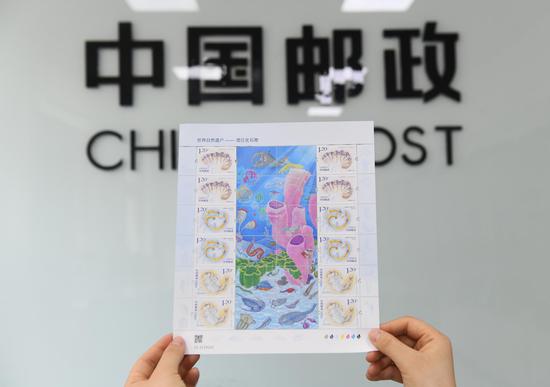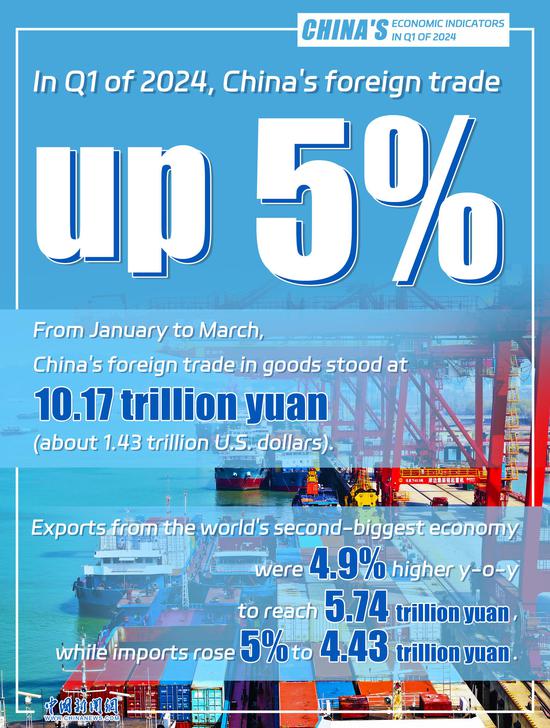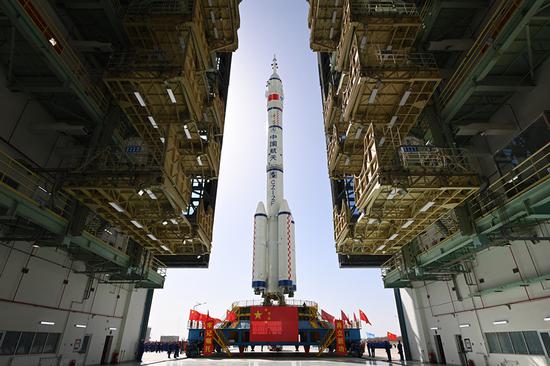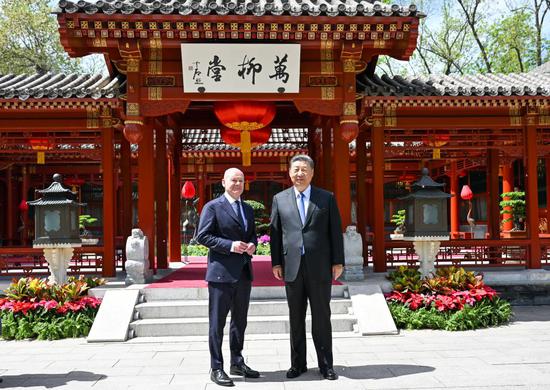China's grain yield will grow at an annual pace of 1.1 percent over the coming decade as hunger rises worldwide, enabling the world's largest food importer to buy significantly less from overseas, according to a report released on Saturday.
The country's annual crop output is projected to reach 704 million metric tons this year and top 766 million tons by 2033 thanks to stable growing areas and increased productivity, up from 695 million tons last year, according to China Agricultural Outlook 2024-33, which was compiled by the Ministry of Agriculture and Rural Affairs' market early warning expert committee.
The report said that by 2033, each hectare of farmland in China would be able to produce an average of 6.43 tons of food, compared with the current level of around 5.83 tons, allowing the country to meet 91.5 percent of its food needs.
China's crop imports would decrease to 110 million tons in 2033, it said. China imported 160 million tons last year, with soybean accounting for 99.4 million tons, official data showed.
The country will be importing just 78.6 million tons of soybean in 2033, the report estimated.
Authorities have long leaned on imported soybean to make animal feed and cooking oil while focusing on achieving absolute self-sufficiency in staple crops such as rice and wheat. However, vulnerabilities in the global supply chain, among other factors, have prompted the Chinese government to ramp up domestic soybean production through the deployment of higher-yield varieties and expanding planting areas.
The report, which has been released annually since 2014, was unveiled at the two-day China Agriculture Outlook Conference, which opened in Beijing on Saturday. The conference was held by the Chinese Academy of Agricultural Sciences' Agricultural Information Institute.
The rosy estimates in the report come as China promotes "new quality productive forces" — elements and reforms that can drive strategic emerging industries and boost productivity.
CAAS Party chief Yang Zhenhai told the conference on Saturday that, as part of that drive, the academy will focus on basic research and "key core technological breakthroughs" in areas such as gene editing, synthetic biology, digital intelligence and green technology.
"Developing new quality productive forces is the latest deployment made by the central authorities to promote high-quality development overall," he said.
Sheikh Ahaduzzaman, a China representative at the United Nations' Food and Agriculture Organization, told the conference that the world is falling behind in efforts to meet the UN's goal of ending world hunger by 2030, and China has been a stabilizer for the global food market.
UN data showed that by 2022, around 735 million people — or 9.2 percent of the world's population — lived with chronic hunger, which the UN said was a "staggering rise" from the pre-pandemic level in 2019.
Another 2.4 billion people faced moderate to severe food insecurity, meaning they lacked sufficient nourishment, up 391 million from 2019, the UN said.
The central government issued a guideline this month aimed at increasing China's annual grain production capacity by more than 50 million tons by 2030, with a focus on corn and soybean. The guideline said grain productivity is expected to exceed 6.3 tons a hectare by 2030.


















































 京公网安备 11010202009201号
京公网安备 11010202009201号